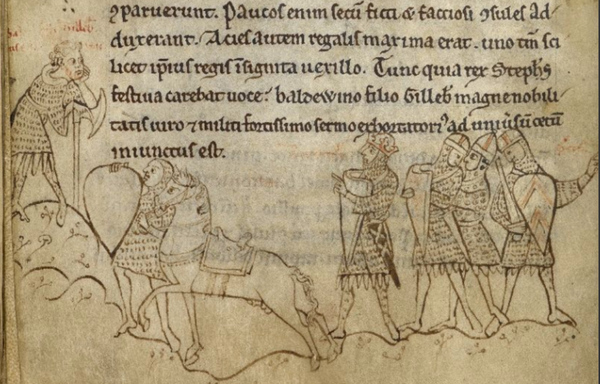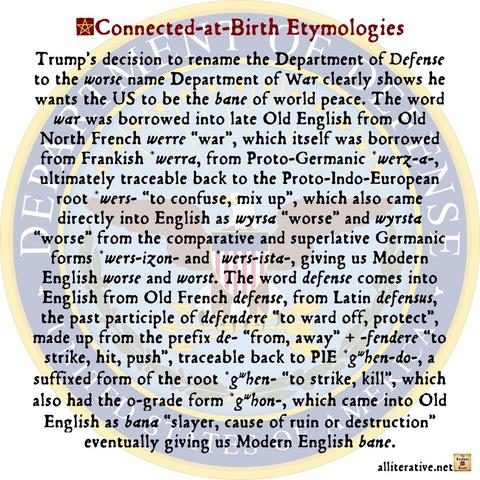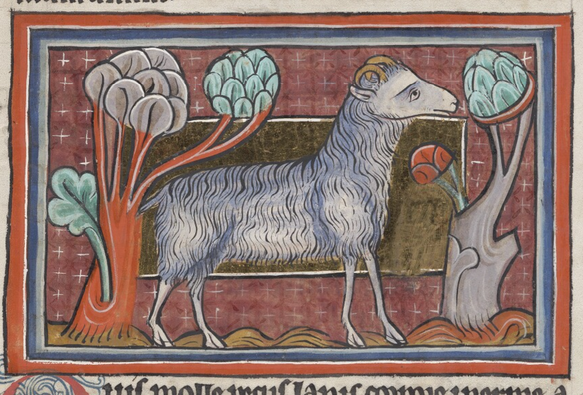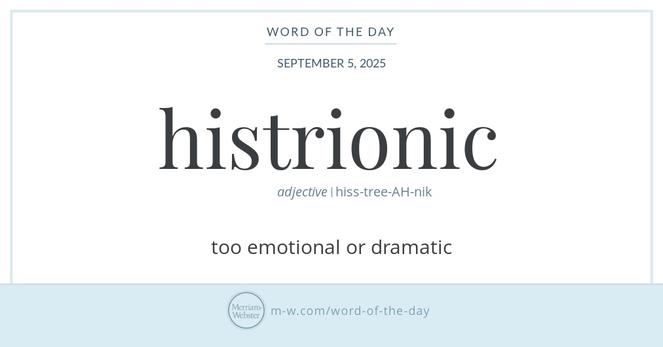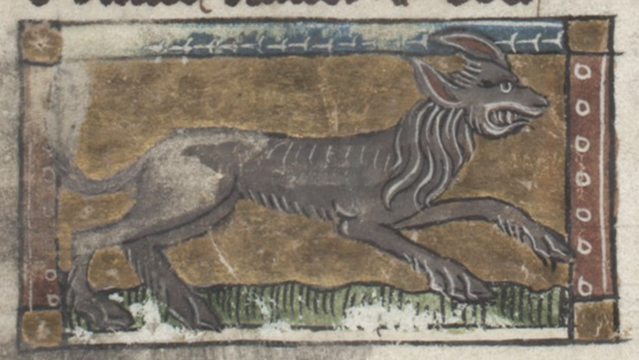metod-wang, m.n: the plain where the decrees of fate are executed, a battlefield. (MEH-tod-WONG / ˈmɛ-tɔd-ˌwaŋ)
Image: The First Battle of Lincoln (1141) in Henry of Huntingdon’s Historia Anglorum; England, late 12th century; British Library, Arundel MS 48, f. 168v.
#OldEnglish #WOTD
Image: The First Battle of Lincoln (1141) in Henry of Huntingdon’s Historia Anglorum; England, late 12th century; British Library, Arundel MS 48, f. 168v.
#OldEnglish #WOTD
